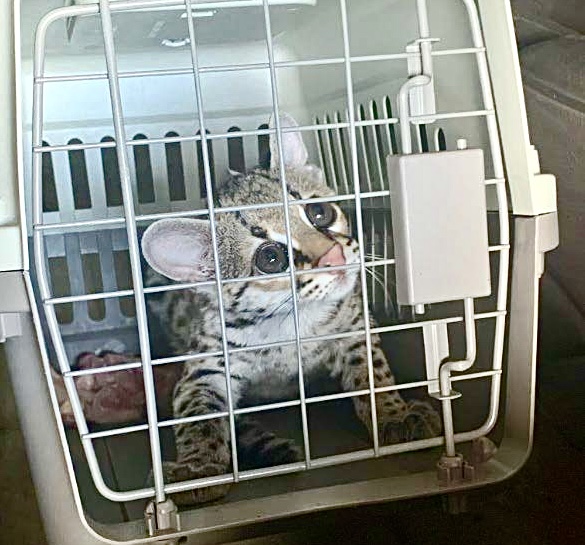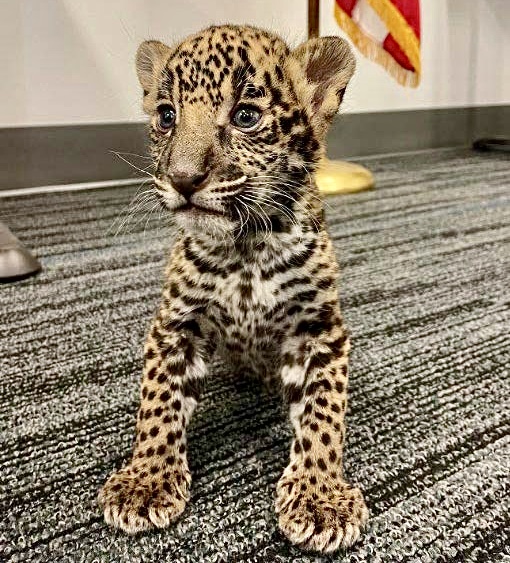First Rescue Under Big Cat Public Safety Act: Texas Couple Charged with Selling Protected Wildlife
In a landmark enforcement under the Big Cat Public Safety Act (BCPSA), a Texas couple is facing charges for the illegal sale of protected wildlife, including an attempt to sell a jaguar cub. Rafael Gutierrez-Galvan, 29, and Deyanira Garza, 28, appeared in federal court in McAllen, Texas, on September 27th in connection with the charges.
The criminal complaint alleges that Gutierrez-Galvan engaged in the sale of a margay cub on August 24th, receiving $7,500 for the transaction that took place in a local Academy Sports and Outdoors parking lot. Subsequently, on September 26th, he reportedly attempted to sell a jaguar cub to the same individual. Law enforcement intervened with a traffic stop before Garza could arrive at the location, discovering the money intended for the sale.
The BCPSA, aimed at addressing concerns related to the private ownership and trade of big cats, was enacted to enhance public safety and prevent the exploitation of these animals. The charges against the Texas couple represent a significant step in enforcing the legislation and safeguarding protected wildlife from illegal activities.

Fortunately, authorities successfully reclaimed both untamed creatures. The Endangered Species Act diligently bars the entry, exit, trade, and conveyance of jeopardized and endangered species. Jaguars find themselves cataloged as a species on the brink of extinction.
In the event of a conviction, Gutierrez-Galvan and Garza could be handed a federal prison sentence of up to five years, accompanied by a substantial maximum fine of $20,000.
Expressing gratitude for the Big Cat Public Safety Act and federal wildlife safeguards, these imperiled creatures have been rescued from the perilous and inhumane exotic pet trade. Carson Barylak, the policy campaign manager for the International Fund for Animal Welfare (IFAW), remarked, “Through our rescue efforts, IFAW and our sanctuary partners have witnessed firsthand the harsh lives captive big cats and other wild species endure when left in unqualified hands.” Commending law enforcement for achieving this significant milestone, Barylak added that it contributes to the protection of both wildlife and people.
The Big Cat Public Safety Act achieved legal status in late 2022, marking a historic stride in securing captive big cats nationwide. This legislation outright bans the private possession of tigers, lions, leopards, and other large cats as “pets,” while also placing constraints on hazardous interactions between the public and these apex predators.
Before the enactment of BCPSA, the trade in captive big cats in the U.S. lacked substantial regulation, leaving the extent of these animals held in captivity in backyards, basements, and private menageries unknown. Tigers, lions, and other large cats often suffered from inadequate veterinary care, nutrition, enrichment, and living space under such circumstances. The BCPSA has significantly enhanced safety by curbing the perilous trade in these iconic species, making captive wildlife and communities more secure.
With a mere estimated population of 173,000 jaguars remaining in the wild, they are on the brink of being labeled as “near threatened” by the IUCN and are officially deemed endangered under the U.S. Endangered Species Act. The vigilant enforcement of the BCPSA will serve as a crucial measure to shield captive jaguars and other large cat species while ensuring the well-being of their counterparts in the wild.
